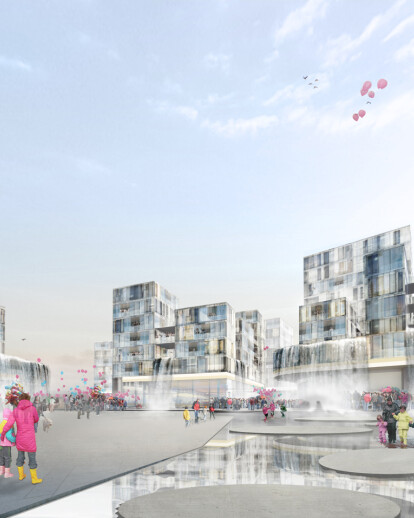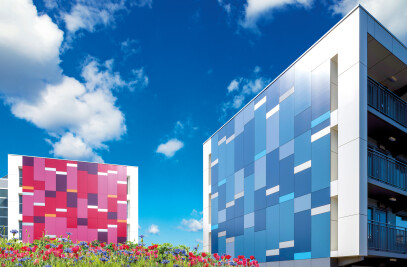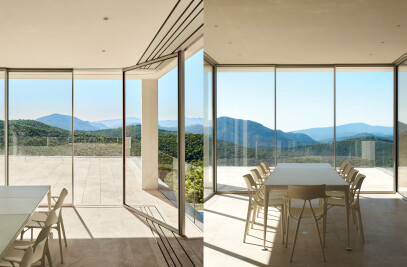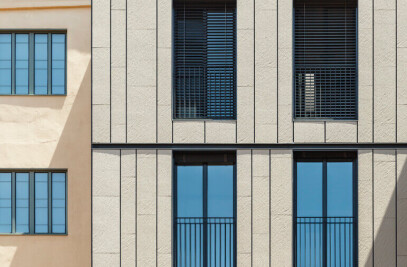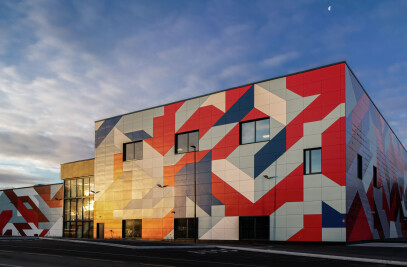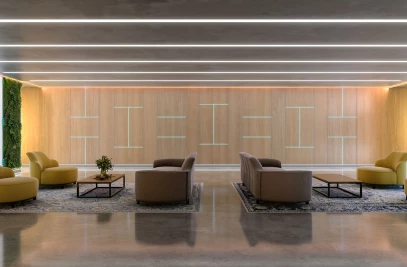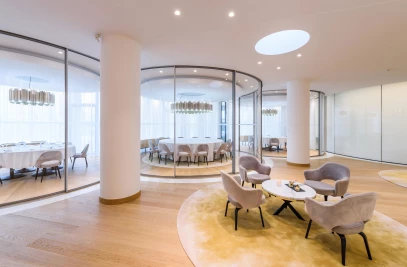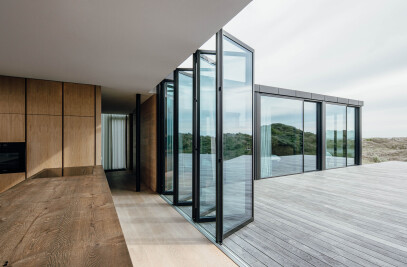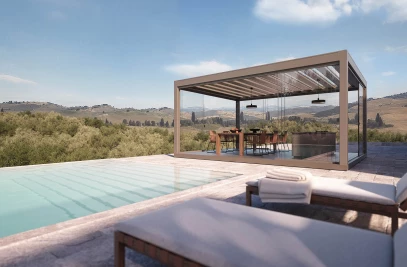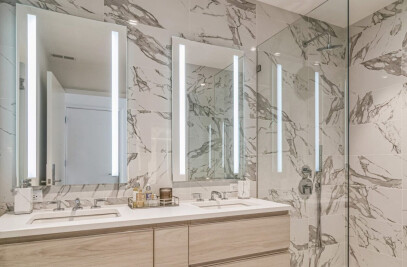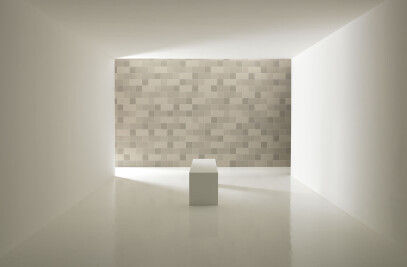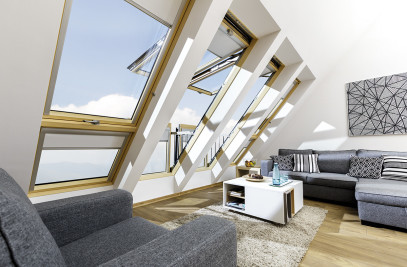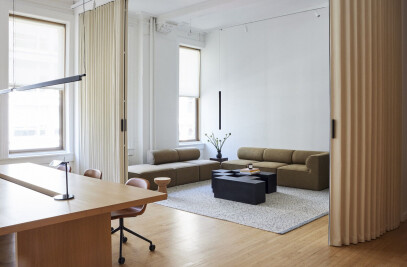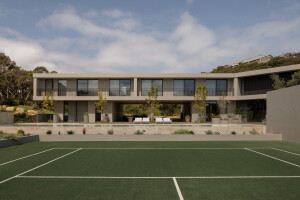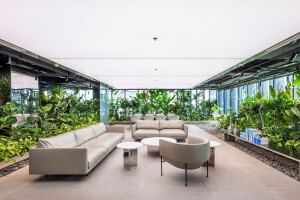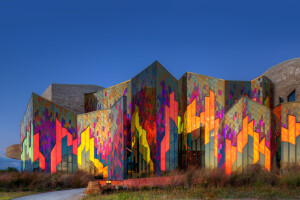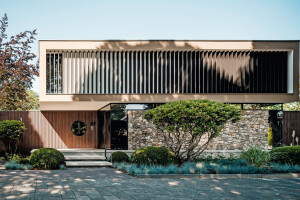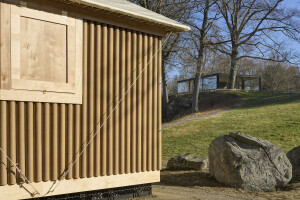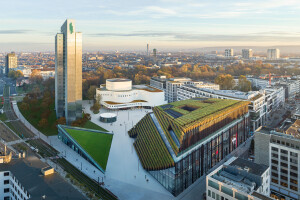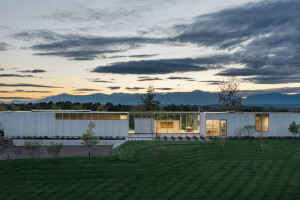Oslo’s population is expected to double within the next ten years. The outer city centre Grorud is part of Oslo’s densification strategy and therefore aims at bringing in new inhabitants while consolidating the existing. Diversifying social structure comes along with the sustainability imperative – what is the public space to project from these demands?
Cumulus is a proposal for Grorud that believes in the latent potentials of the site: its latent ecologies and orders, the environmental presence in outer city low density urbanism, the mix and publicness of the blunt peripheral programmes and the underlying ideas of modern light and lit dwelling manifest in the existing housing slabs of Grorud senter. Cumulus thus is a strategy to re-cycle, de-sectorise and confront these latencies and interweave them through a concept of (water) flow: The project conceives social spaces as related to environmental dynamics and develops a close - but not too close - public sphere inherent to the loose aggregate at hand.
Cloud! The white and heavy cumulus congestus cloud serves as performative model to develop an architectural typology for this synthesising approach: undetermined and open on the ground, heavy and stable on first floor, a spongy heap in the sky. It floats above and fixates rudimentary every day programmes, it enables an intimate and lit inhabitation of the skies, it collects and stores water while the release of this water becomes a social event – the day in nearing winter when it is cold enough to freeze the flooded surfaces to an ice skating plane. Morphologically the typology enables desired shifts in scale: On ground the crowding of programmes assembles towards a patchy canopy rather than a homogenising cover. Above ground miniature skyscrapers at the scale of single rooms produce a multiplicity of spatial situations and light conditions. The aim is to fabricate a sense of urban “inside” at a small scale while keeping it open to the environment. Social densities and encounters merge with openness and porosity.
Cumulus builds on an accumulation of public programmes within a defined area framed by an ecology of gardening and sports. It strives for a packed mix and the adjacencies of different users: Close, but not to close. Above this social field hover private dwellings, which are developed as a means to live in the sky: You can wander from one part of your L – shaped apartment to the other by crossing a glass bridge: Air and the outdoors become part of the house.
A step by step guide to Cumulus:
1.0 Interpretations of the existing on a set of scales:
1.1 Enclaves and/ or a network of ecologies
- Start with the programmatic enclaves of the 6oties and 70ties, read their separating borders as different ecological bands touching each other: river streams, topographical conditions, forest straps and lawn belts. Together they form a network. Thicken this net by developing a new frame for the Grorud Centre. This will host allotment gardens, sport fields, jogging trails, and constructed wetlands – an open ecology coined by human inhabitation. - Within the frame: relax the highway into a web of urban streets: This introduces a horizontal logic of movement and brings the two if not four parts of Grorud together: Culture and education, sports, shopping and transportation. Favour crossovers instead of programmatic separation. 1.2 Everyday programmes and/or their spatial articulation
- Start with an inventory of the existing everyday programmes such as gas station, bus terminal, pizza place and fitness studio. Add a supermarket, a hot dog shop, a bowling centre and a cinema (maybe a hamam – attracting people from regional Oslo. And: a community centre serving the very local needs!). - Shift these programmes next to each other. Count on their different heights, lights, signage and users. Arrange them dynamically and in such a way that diagonal relations emerge. - Add a thick layer of program on top: a heap of dwellings. This will serve as the attic as in classical architecture yet it is inhabitable. The aim is to create a canopy that will loosely merge the different public programmes into a continuous, overlapping field.
1.3 Modernist dwelling and /or inhabiting the sky
- Start with the advantages of modern panoramic living: Light, air and views. Combine it with old town adjacencies of facing street sides where casual glances of the neighbours and their lives are possible. - Exaggerate the idea of airiness and lightness: The L, S or U - shaped configuration of an apartment makes outdoor space part of the dwelling. Amplify this concept through the luxury of having parts of the apartment connected through a glasshouse bridge that can be completely opened in summertime. Translucent insulation keeps the warmth in, the sun out and makes light an intrinsic component of the dwelling. - Save square meters and shift your house towards the others. Privacy is guarantied with mirror glass – your fellow citizens’ walls become yours. Glimpses across to the neighbours’ and long views into the wider surroundings alternate. Inhabiting the sky means the sharing of clouds, air, reflections and light conditions and daily rhythms.
2.0 Social spaces related to environmental dynamics
2.1 Seasonal changes
Consider the extremities of northern living: Long summer nights and dark winter days equal the expansion and contraction of programmes. For the summer: reserve spaces for the weekly market, the kid’s pool, film screenings and communal dancing; for the winter: re-use these surfaces for skating, skating lessons and punch.
2.2 Water cycles
Look at a dominant environmental force: rain. Dwelling becomes an active a part of the environment when collecting water on top, on the facades and on the platform. On top enough water can be harvested to supply a neighbourhood of dwellings with their weekly loads of washing machines. Water collected on the facades and on the platforms will be stored to serve an event in early winter: the release of water to freeze. An ice skating surface congeals slowly according to the smooth topography of the area. In spring time, when the water is warming up, it will be discharged into the constructed wetlands – ultimately to help gardening the allotments and trough animals passing by.
